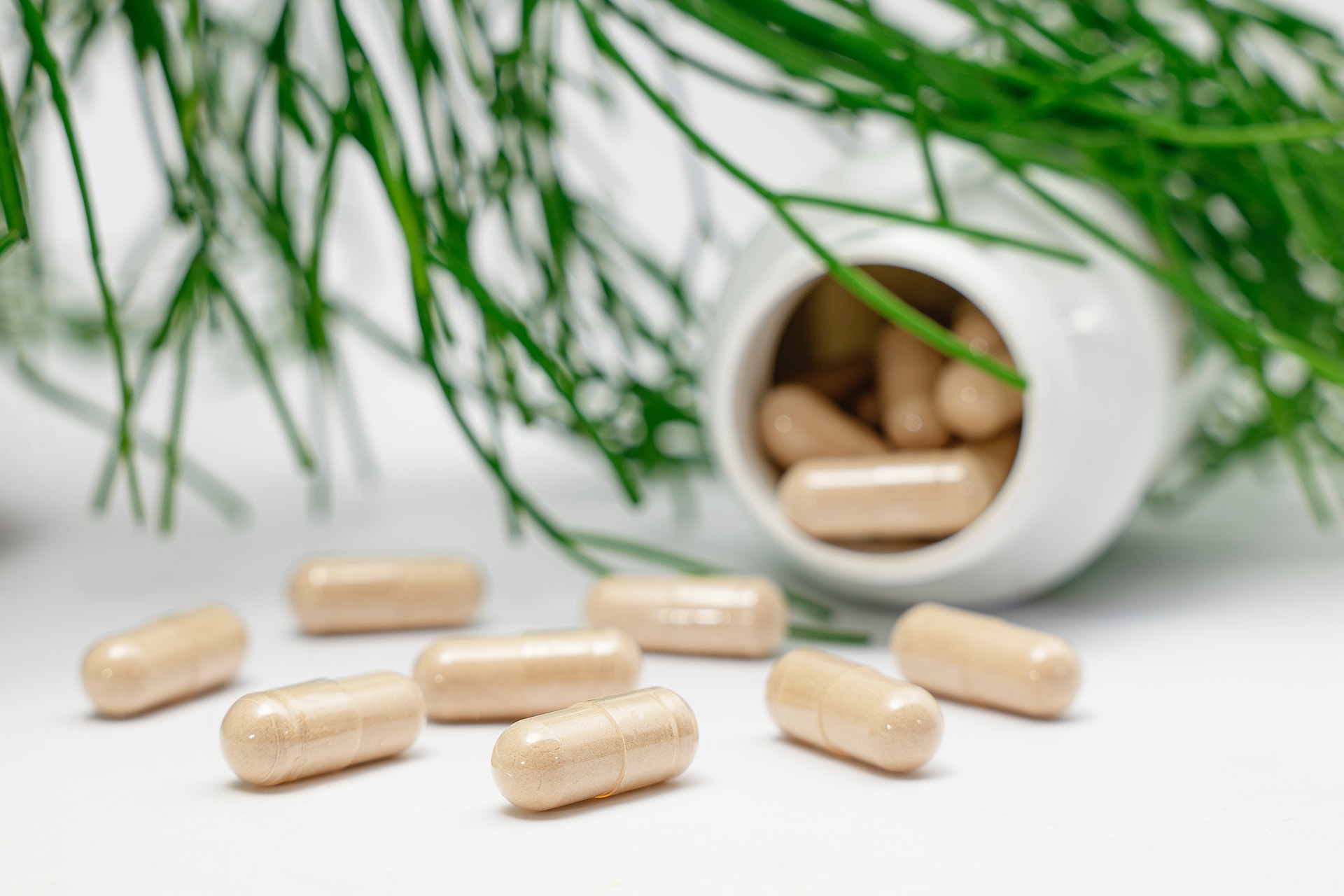Health & Hygiene • 12/28/2023
Sea Moss Benefits: Understanding the Latest Wellness Craze

Revivalist is a reader-supported endeavor and our posts may contain affiliate links. When you buy through links on our site, we may earn an affiliate commission.
Sea moss, scientifically known as Chondrus crispus or Irish moss, is a remarkable marine algae that’s become a wellness trend due to its numerous health benefits. This natural superfood has been used for centuries in various cultures for its therapeutic properties and is now being recognized worldwide for its potential to promote overall well-being. Although there are extensive sea moss benefits, those with certain disorders should use it cautiously.
Although initially used as a traditional remedy, sea moss has become a bona fide wellness phenomenon. This marine algae has taken the health and fitness world by storm, gaining a fervent following among influencers, celebrities and health enthusiasts. From A-list Hollywood stars to social media influencers with millions of followers, many sing the praises of sea moss. It has emerged as the latest wellness craze due to its myriad of health benefits.
Understanding the Sea Moss Benefits
It’s Rich in Essential Nutrients
Sea moss is a nutritional powerhouse, boasting a wide range of essential vitamins and minerals. It’s particularly abundant in iodine, calcium, magnesium, potassium and vitamins A, C, D and E. These nutrients support various bodily functions, including bone health, immune system function and skin maintenance. Additionally, sea moss is a good source of dietary fiber, promoting digestive health and aiding in weight management.
It Promotes Heart Health
Sea moss can promote heart health due to its potassium content, which helps regulate blood pressure and reduce the risk of hypertension-related heart issues. Additionally, its potential to lower LDL cholesterol levels can contribute to a healthier cardiovascular system. Moreover, it may reduce chronic inflammation, one of the primary causes of heart disease.
It Supports Immune System Function
Sea moss can help bolster your immune system with its high vitamin C content. Vitamin C is known for its antioxidant properties, protecting cells from oxidative stress and strengthening the body’s defenses against infections. Incorporating sea moss into your diet may help reduce the risk of common illnesses and promote overall wellness.
It Promotes Gut Health
Sea moss is rich in dietary fiber, essential for maintaining a healthy digestive system. Fiber promotes regular bowel movements, prevents constipation and supports the growth of beneficial gut bacteria. Including sea moss in your diet can improve digestive health and alleviate digestive issues like bloating and indigestion.
It Promotes Skin Health
The vitamins and minerals found in sea moss can positively impact skin health. Vitamin A, for example, is known for its ability to promote healthy skin by reducing the appearance of acne and blemishes. Additionally, sea moss contains amino acids that help support collagen production, crucial for maintaining skin’s elasticity and youthful appearance.
It Aids Thyroid Function
Iodine, an essential nutrient in sea moss, is crucial in supporting thyroid function. The thyroid gland relies on iodine to produce hormones that regulate metabolism and energy production. Adding sea moss to your routine can help ensure your thyroid functions optimally, contributing to increased energy levels and improved weight management.
It’s Loaded With Anti-Inflammatory Properties
Inflammation is at the root of many chronic health conditions. Sea moss contains compounds that can have anti-inflammatory properties. These compounds may help reduce inflammation in the body, potentially lowering the risk of chronic diseases and improving overall well-being.
It has the Potential for Weight Management
The combination of fiber, essential nutrients and potential appetite-suppressing effects makes sea moss a valuable addition to a weight management plan. By promoting a feeling of fullness and supporting digestion, sea moss may help individuals maintain a healthy weight more easily.
It Can Optimize Workout Recovery
If you’re a workout enthusiast, sea moss offers valuable benefits in terms of recovery. Its amino acid content supports muscle recovery and can alleviate post-exercise soreness. Sea moss’s high water content aids in rehydration, which is vital for replacing lost fluids during intense physical activity. Furthermore, essential electrolytes like potassium, magnesium and calcium contribute to better muscle function and reduce the likelihood of muscle cramps. The energy-boosting nutrients in sea moss can also enhance overall stamina and vitality, making it an excellent choice for those seeking efficient workout recovery.
Who Should Avoid Taking Sea Moss?
- Iodine sensitivity or thyroid disorders: Sea moss is naturally high in iodine, which can be problematic for those with iodine sensitivity or thyroid disorders, like hyperthyroidism or Graves’ disease. Excessive iodine intake may exacerbate these conditions.
- Bleeding disorders: Sea moss contains vitamin K, which plays a role in blood clotting. If you have a bleeding disorder or are taking blood thinners, consult a health care provider before adding sea moss to your diet to ensure it doesn’t interfere with your medication.
- Allergies: Some people are allergic to sea moss or other types of seaweed. If you have a known seaweed or seafood allergy, it’s essential to avoid sea moss to prevent allergic reactions, which can range from mild skin irritation to severe anaphylactic shock.
- Pregnant and breastfeeding women: While it can provide essential nutrients, pregnant and breastfeeding women should exercise caution. Excessive intake of certain nutrients, like iodine or vitamin A, can be harmful during pregnancy. Pregnant and nursing mothers should consult a health care professional before using sea moss.
- Children: Due to its high iodine content, sea moss isn’t typically recommended for infants and young children. Introducing it to a child’s diet should be done under the guidance of a pediatrician to avoid potential thyroid-related issues.
- Kidney disorders: Sea moss is a source of potassium, and those with kidney problems, especially those on a potassium-restricted diet, should monitor their potassium intake closely. Excessive potassium consumption can be harmful to individuals with compromised kidney function.
Before incorporating sea moss into your diet, especially as a supplement or in large quantities, it’s always wise to consult with a health care professional. They can provide personalized guidance based on your specific health needs and circumstances.
How To Get the Most Out of Sea Moss Benefits
You can take sea moss in various ways. One common method is to prepare a sea moss gel by washing and soaking the dried sea moss in water until it swells and becomes a gel-like texture. After blending it into a smooth consistency, you can store the gel in the refrigerator and add a tablespoon or two to smoothies, soups, sauces or other recipes as a nutrient-rich thickener.
Alternatively, mix sea moss powder into your favorite drinks or sprinkle it on top of foods. If you’re not up for making the gel or powder yourself, it’s available at most supermarkets and wellness stores.
Some people take sea moss tablets or capsules, which offer a convenient way to incorporate its benefits into their daily routine. The method you choose depends on your preference and how you plan to integrate it into your diet.
Elevate Your Health With Sea Moss
People have used sea moss for centuries for its therapeutic properties. Packed with essential nutrients and potential health benefits, sea moss offers a wide range of advantages. Whether you incorporate it into your diet as a gel, powder or in your favorite recipes, it’s a natural, holistic addition that can enhance your overall well-being.
Subscribe to Our Weekly Newsletter
We would love to connect deeper with you!


